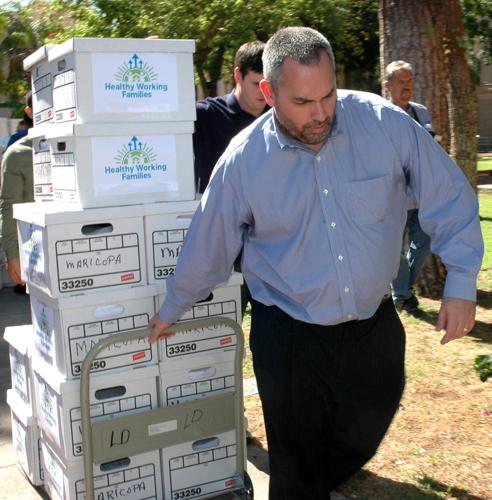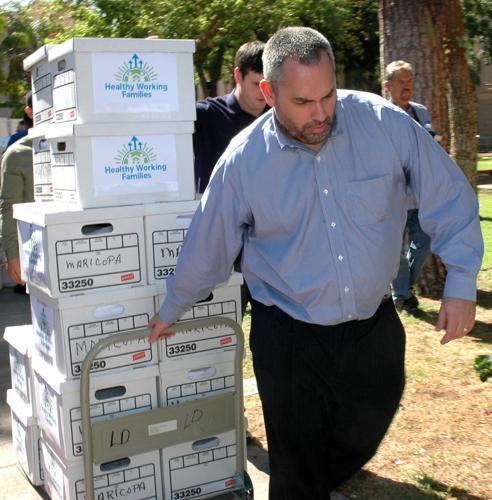PHOENIX — The fate of whether voters get to decide two ballot measures dealing with wages could depend on who shows up in court starting Thursday, Aug. 11.
Challengers contend that many of the people who gathered signatures to raise the minimum wage and to cap the pay of hospital executives were out-of-state residents or paid circulators.
That, by itself, does not disqualify them. But attorney Andy Gordon, who represents those opposed to both measures, said many of them did not register as required with the secretary of state. That, he said, invalidates any signatures they gathered.
What Gordon has done to prove his case is issue subpoenas for those whose credentials he questions to show up in court. That would give him a chance to question them in a bid to show the petitions they circulated should not be counted.
He’s going to have to convince judges that a lot of the circulators should not have been out there gathering names to throw out a lot of those signatures to keep the issues from going to the ballot.
The first people subpoenaed are due in court today.
That measure, if approved by voters — assuming it gets on the ballot — would require employers to pay workers at least $12 an hour by 2020. It also mandates at least three paid days of personal leave — five for larger employers.
Backers turned in 271,883 signatures. They need to have just 150,642 found valid to put the question on the November ballot.
Gordon does have one thing working in his favor. Under the law, if someone who has been properly served with a subpoena fails to show up, the court has to conclude the person was not a legal circulator, making all of the signatures that person gathered inadmissible.
On Wednesday, Maricopa County Superior Court Judge Joshua Rogers threw a hurdle into Gordon’s path.
The judge said that 87 of the 170 subpoenas issued were not properly served. So Gordon will not be able to question them, meaning the signatures they gathered are presumed valid.
Gordon has separately issued about 130 subpoenas in his bid to quash a separate ballot measure that would cap the compensation of nonmedical hospital administrators and executives at what is paid to the president. That figure is $450,000 a year.
That case goes to Maricopa County Superior Court Judge Douglas Gerlach next week.
Gordon has an alternate argument he is presenting to Gerlach to kill the hospital pay measure. He contends the proponents of that initiative did not comply with legal requirements that the committee name actually inform voters of whether it is for or against the proposed measure.





